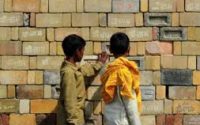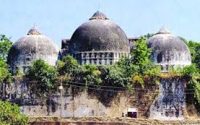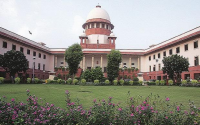HC’s decision on OBCs ruffles feathers among UP parties
Source: deccanherald.com
With the halting of the UP government’s decision to put 17 Other Backward Castes (OBC) in the Scheduled Castes (SC) list, Allahabad High Court on Monday upset many politicos who have always resorted to such quota calculus to further their existing vote banks or create new vote banks.
Mayawati alleged politics over the issue as the Supreme Court said the state government did not have the power to put these communities in the SC list.
Yogi Adityanath government had gone for the decision in June this year and the court order has come now ahead of bypolls to 13 assembly constituencies in the state. The move was considered a political masterstroke by the BJP to consolidate its Extremely Backward Castes vote base, by enlisting communities like Nishad, Bind, Mallah, Kewat, Kashyap, Bhar, Dhivar, Batham, Machua, Prajapati, Rajbhar, Kahar, Pottar, Dhimar, Manjhi, Tuhaha and Gaur in BJP’s fold when dominant OBC Yadav community is by and large with Samajwadi Party.
BSP chief Mayawati on Tuesday tweeted, “The High Court’s order nullifying the decision of forcibly declaring 17 OBC castes as SC is naturally in headlines. Such decisions inspired by thorough political opportunism do not damage any party of government as such but affects the entire society. This is very unfortunate.”
It is not the first time — parties including Congress have previously resorted to similar decisions on quota in UP and elsewhere, most of which were struck down by the courts.
Ahead of 2012 UP assembly polls, the Congress in December 2011 made a promise of slicing Muslim sub-quota of 4.5% from the existing 27% reservation for OBCs. Vying with the Congress party, Samajwadi Party promised a higher percentage of sub-quota. The Andhra Pradesh High Court in May 2012 struck down the UPA government’s proposal.
In 2017, Akhilesh Yadav government had recommended the inclusion of 17 OBCs in the Scheduled Castes (SC). Mayawati had castigated the UP government over the move then too.
Interestingly, when the BSP was in power, it had sent a similar recommendation to the Centre. In 2004 the Mulayam Singh Yadav-led SP government had also passed a similar resolution. Before that when BJP leader Rajnath Singh was Chief Minister of Uttar Pradesh in 2001, the social justice committee constituted by his government had recommended classification of backward classes into three categories and accordingly slicing of the reservation among them.
None of these proposals have seen the light of the day so far, but the prospect of creating a new vote bank or breaching the existing one of the rival has always tempted successive governments to work out such caste calculus.



